The winners of the final round of NASA’s 3D-Printed Habitat Challenge – a competition launched in 2015 to create sustainable shelters suitable for use by settlers on the Moon, Mars or beyond using resources available on-site – have been announced. The teams competed for a prize purse of $700,000 (£538,422) in a head-to-head print-off to create scale models of their designs at the final in Peoria, Illinois on 1-4 May. AI SpaceFactory, an architectural practice based in New York took $500,000 (£385,035) for the first prize, and a second-place prize of $200,000 (£154,043) went to Pennsylvania State University.
In the previous, ‘software modelling’ stage, 11 teams competed for a share of a $100,000 (£76,600) prize. Three teams, SEArch+/Apis Cor, Zopherus and Mars Incubator, bagged the top spots. Each of the 11 teams in this stage was awarded points based on the architectural layout, efficient use of interior space and constructibility of their design.
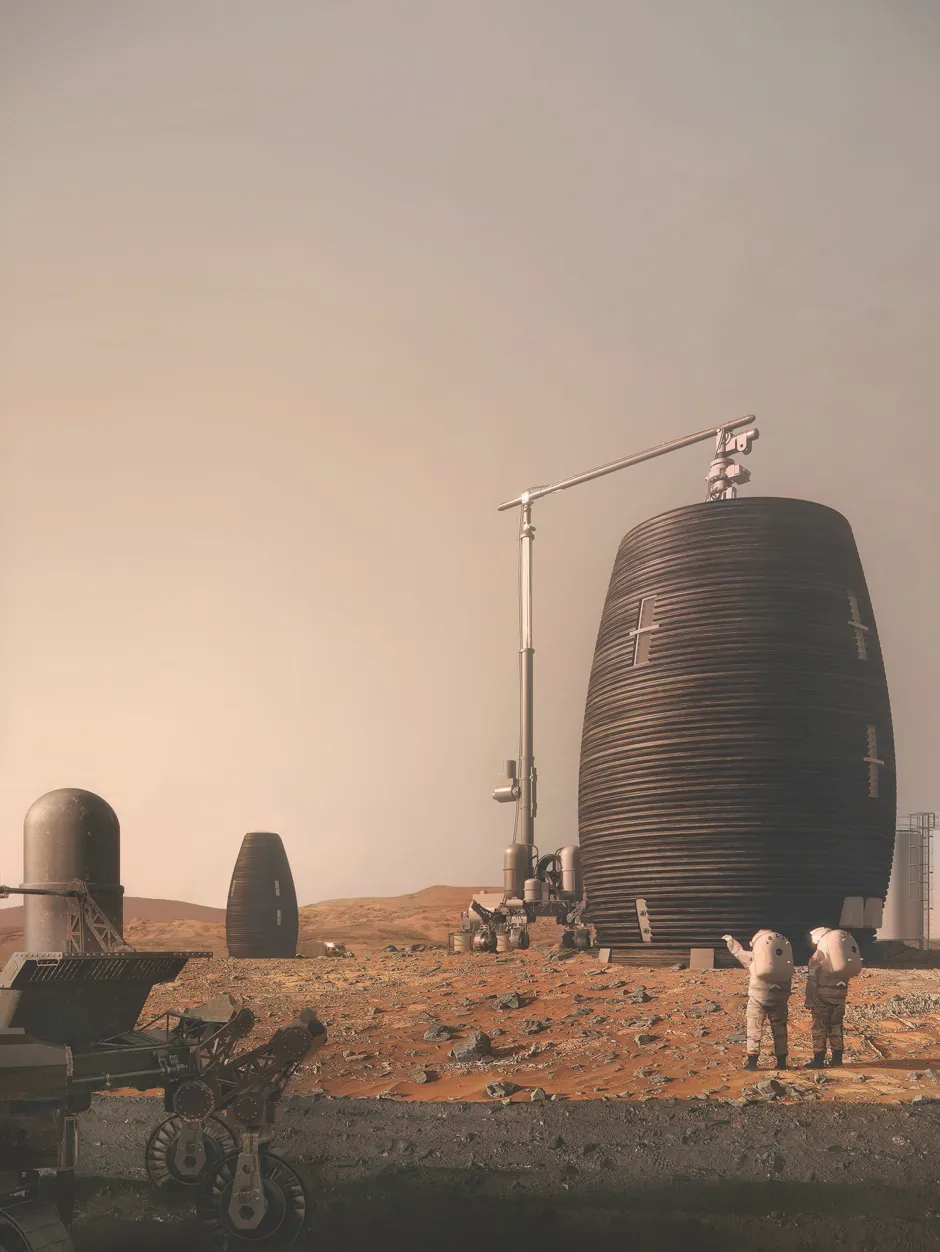
This rather striking beehive-like structure was the design submitted by the team from AI SpaceFactory. The design (named ‘MARSHA’) missed out on a prize in the software modelling stage, but took the top prize in the final round.
Read more:
- Light sails and stingray airships to explore space
- NASA finds complex organic matter in Martian rock
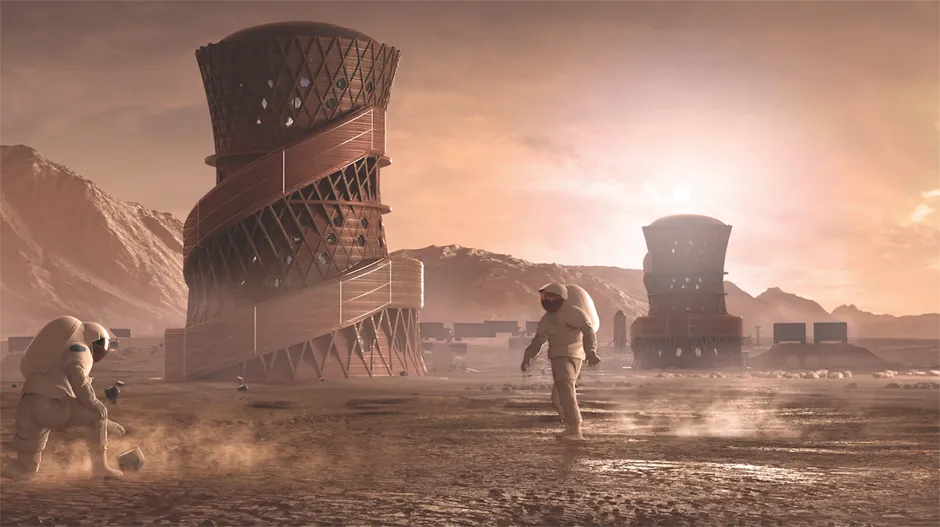
SEArch+/Apis Cor’s chimney-like design took first place in the software modelling round. The unique shape of their habitat allows it to be continually reinforced, and lets light in through trough-shaped ports on the building’s sides and top.
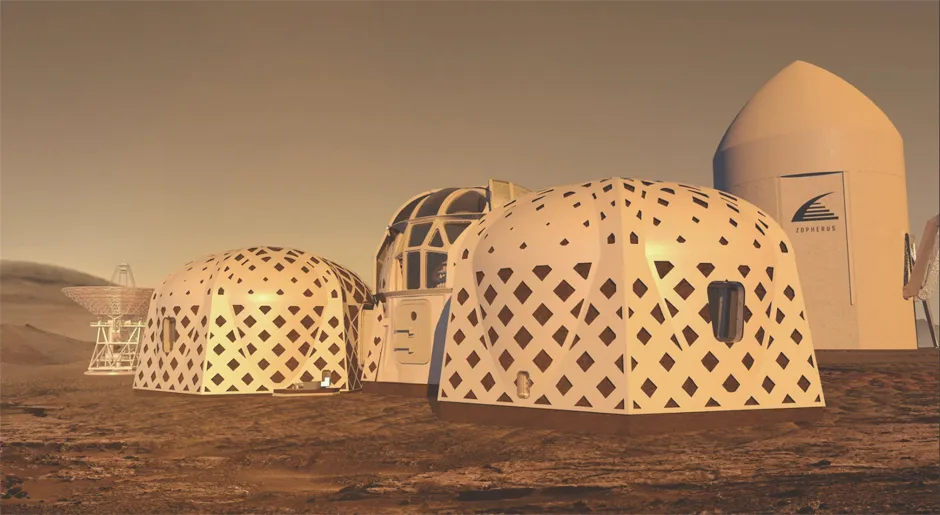
Second prize in the software modelling stage went to Team Zopherus from Rogers, Arkansas. Their design would be constructed by an autonomous roving printer; once it has completed one structure, it can move on to the next site.
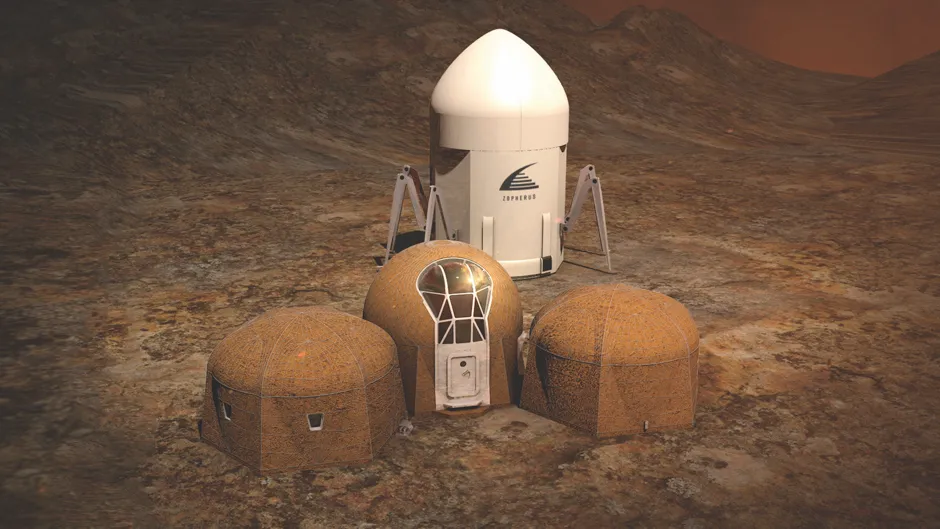
After they’ve been 3D-printed, Zopherus’s buildings can be insulated with materials gathered on-site from the Martian regolith.
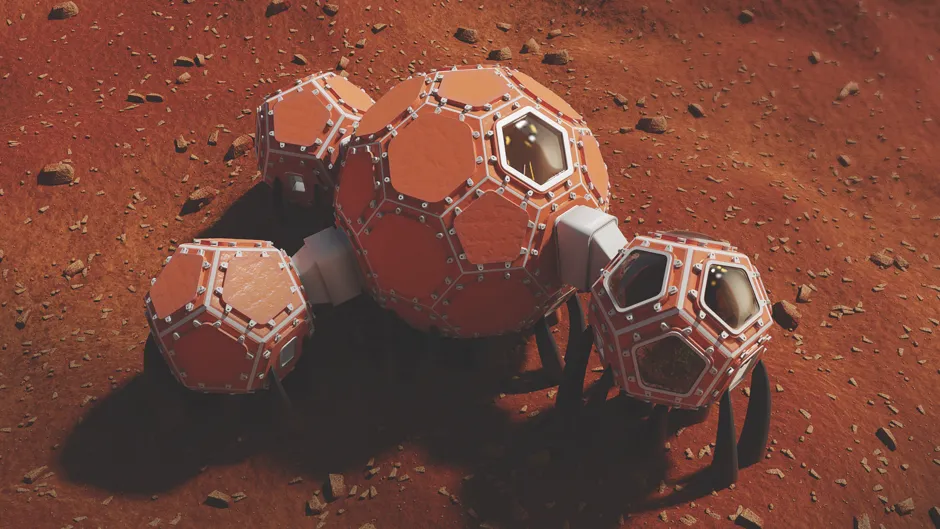
This modular structure made up of interlocking polyhedral pods was the brainchild of Mars Incubator. Based in New Haven, CT, the team were awarded third place in the software modelling round for their efforts.
- This article was first published in BBC Science Focusin May 2019 –subscribe here